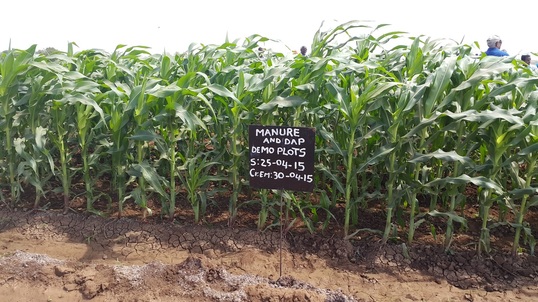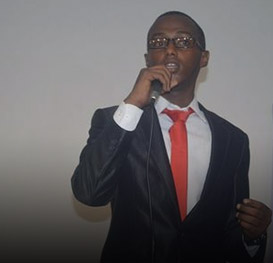Research, Monitoring & Evaluation
ROMEO Background, Vision & Mission.

BACKGROUND:
The City University Research Operations, Monitoring & Evaluation Office (ROMEO) is responsible for City University (CU) research portfolio as well as the monitoring and evaluation of both internal and external projects on behalf of the university or other clients. The research component is mandated to facilitate and support relevant quality research that contributes to knowledge in areas delineated in the CU research priorities.
VISION:
ROMEO is envisioned to lead City University to become a preeminent leader in quality research productivity and efficacy analysis in Somalia and the region, and its pursuit of international recognition through excellence and rigorous standards in research, monitoring and evaluation.
MISSION:
The primary mission of ROMEO is to facilitate quality and relevant research to achieve City University’s research goal of producing knowledge that meaningfully contributes to the development of Somalia and to the well-being of the Somali people. ROMEO is mandated to develop research excellence culture and capacity at City University.

METHOD:
ROMEO is expected to fulfill CU research mission by developing CU research and M&E policy and procedures, further developing and continually updating CU research priorities and specific research agendas, developing research knowledge resources at CU, providing research training for faculty and students, managing and facilitating CU research grants, helping CU researchers apply for external grants and bring them to fruition, facilitating the planning and founding of specialized research and training institutes and centers at CU, and supporting the planning and establishment of CU-based academic journals in selected academic fields.
MANAGEMENT:
The Director of ROMEO is the head of this office. The Director of ROMEO answers to the Senior Vice President for Academic Affairs. A research committee will work closely with the Director. Depending on CU expansion and capacity development, ROMEO is envisioned to transform into an institute with its own facilities outside the campus. We also envision the creation of the position of CU Vice President for Research and Development.
Activities:
ROMEO facilitates and supports several initiatives that contribute to the achievement of CU research goals, including:
1. Resources and Training:
ROMEO will provide resources and training for CU researchers and M&E Analysts. ROMEO will offer a series of workshops on research skills, proposal writing, publication skills, monitoring metrics, report writing and knowledge dissemination, research software skills (e.g., SPSS, Nvivo), etc. the office will invite experienced researchers to conduct seminars and workshops at CU. Also, ROMEO will organize forums for faculty to share their research interests and accomplishments. In addition, ROMEO will lead the development of relevant and quality library and web resources, research software resources, and online tutorials for CU staff and student researchers.
2. Policy and procedures:
ROMEO will develop and continually update CU research policies, procedures and forms. Examples are policies and procedures related to research involving human and animal subjects.
3. Faculty Research Incentive:
The purpose of these small grants is to fund quality faculty research that can be either individual or small groups. Through ROMEO, City University faculty members can apply for this fund every year. These competitive funds are designed to support each year a number of selected research projects that can be completed within one year. A qualified research evaluation committee will select the winning projects.
To guide faculty members, ROMEO will provide:
- Proposal guidelines
- Relevant deadlines
- Grant proposal application form
- Budget guidelines and relevant forms
- Grant progress and final reporting guidelines
- Proposal evaluation criteria :
- Relevance to the university research agenda.
- Relevance to the research interest of PI.
- Relevance to the research interest of the Funder.
- Ethical & Legal Issues addressed.
- Relevance to the development of Somalia.
Also, ROMEO will conduct workshops on the Faculty Research Incentive each year. Proposal approval and sign-of flow chart.
4. Fellowship Research Initiative
CU fellowship initiative supports research that has the potential to make a significant contribution to CU research goals and priorities. This fellowship entails either one of the following:
- A limited number of faculty members are given grants and time release or teaching re-assignment to conduct a major research in one of CU priority research areas.
- A research fellow from outside CU with expertise in one of CU research priority areas and a proven track record of scholarly research and publications is commissioned to conduct a promising research.
Priority will be given to projects that can be brought to fruition within one year.
5. External Funding Proposal
ROMEO will prepare a database of external grant opportunities and will help CU faculty and graduate students to apply for these competitive grants.
6. Student Research
Both undergraduate and graduate students plays a pivotal role in the success of CU research mission.
a.Undergraduate Students
One of the eight CU learning outcomes is to produce undergraduate students who can plan, conduct, and present findings of significant research projects in their fields. As part of their graduation requirements, all CU students take a statistics course, a research methods course, and complete a research project.
Moreover, ROMEO will further enrich undergraduate student research experience through the undergraduate Research Skills Program. Every year, ROMEO will implement a program designed to develop undergraduate students’ research skills. A selected number of high achieving students from various degree programs will benefit prom this program each year (clear criteria and selection process will be put in place). For each cohort, the programs will run for two years. Priority will be given to students who are in the last two years of their degree program. This program has two components:
1. First, every year, this group of students will take 24 hours long research training course. These hours can be spread out throughout the semesters or can be offered intensively during the summer. Students will learn about:
- Research qualitative and quantitative methods (the full research conducting cycle)
- Research software skills
- Research proposal development
- Graduate school admissions and achievement expectations
2. Second, qualified faculty members will mentor these students to develop their own research proposals. Upon successful completion of this non-credit training program, students will receive a certificate that qualifies them to become research assistants. They are supported to become paid research assistants in faculty-led research projects at CU.
Undergraduate students who do not take part in this program are still given the opportunity to enhance their research skills by working as beginning research assistants in faculty-led projects.
b.Graduate Students Most CU graduate programs are designed to produce students who are competent researchers. To graduate, students take graduate level research methods courses and conduct their own independent research.
In addition to the assigned thesis supervisors, ROMEO will serve as resource for graduate students and will support their mentorship by experienced research faculty. Graduate students will be given the priority to work as paid research assistants or collaborate with faculty as co-investigators.
In collaboration with ROMEO, relevant departments will provide undergraduate and graduate students the opportunity to present their research findings at the university. When appropriate, students will be encouraged to present their research in local or international conferences, or even publish in refereed journals.
7. Research Institutes and centers
ROMEO will contribute to the planning and founding of specializing research and training institutes and centers at CU. Examples include: Educational Research and Development Center, Alternative Energy and Water Research Center, Marine Resources Research Center, etc.
8. CU-housed academic journals
ROMEO will contribute to the planning and establishment of CU-based academic journals in various fields.
9. Research Priorities and Agendas
Below are initial themes deemed priority research areas that are envisioned to produce knowledge that could meaningfully contribute to the development of Somalia. ROMEO is expected to further develop and refine these themes. In the long run, the office is expected to help each department to develop its research agenda in line with the overarching CU research priorities, culminating in unified CU research agenda.
- Natural Resources (oil, gas and minerals)
- Livestock, agriculture and marine fisheries
- Water resources
- Resource governance
- Illegal fishing and toxic waste dumbing
Conflict, Peacebuilding and Governance
- Reconciliation
- Conflict resolution mechanisms (modern, traditional and Islamic)
- Constitutional development
- Transitional justice
- Decentralization
- Corruption
- Local governance development
- Resource conflicts
Education
- Access to Education
- Teacher training
- Educating and empowering minorities
- Gender Education
- Peace education
- Quality of the Education
- K-12
- Higher Education
Health
- Prevention and treatment of diseases
- Water & Food safety
- TB & Malaria
- Immunization
Economic Development
- Poverty Alleviation
- Monitory policy
- Entrepreneurship
- Infrastructure
- Transportation Regulation
Social Development
- Identity
- Gender issues
- Crime issues
- Youth Development
- Family issues
- Marriage and divorce
- Family dynamics and relationships
- Family conflicts and their resolutions










